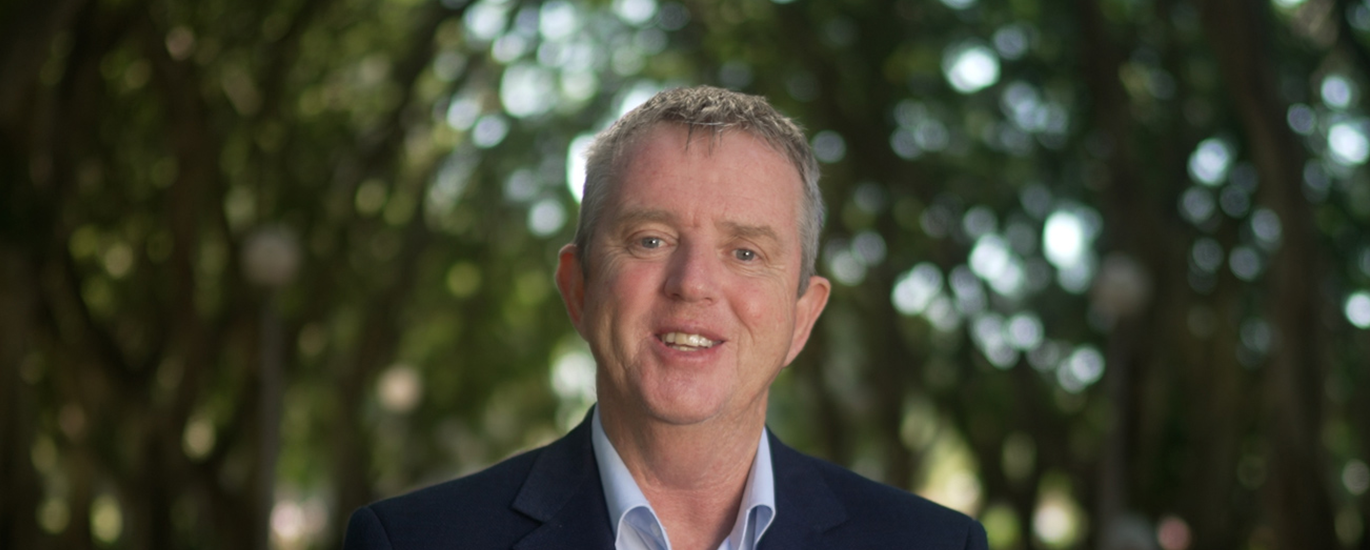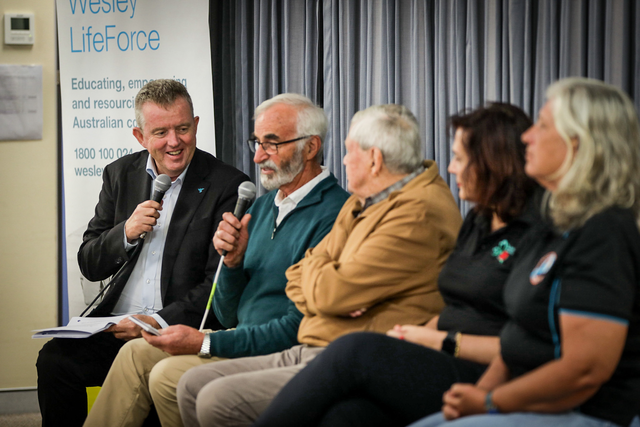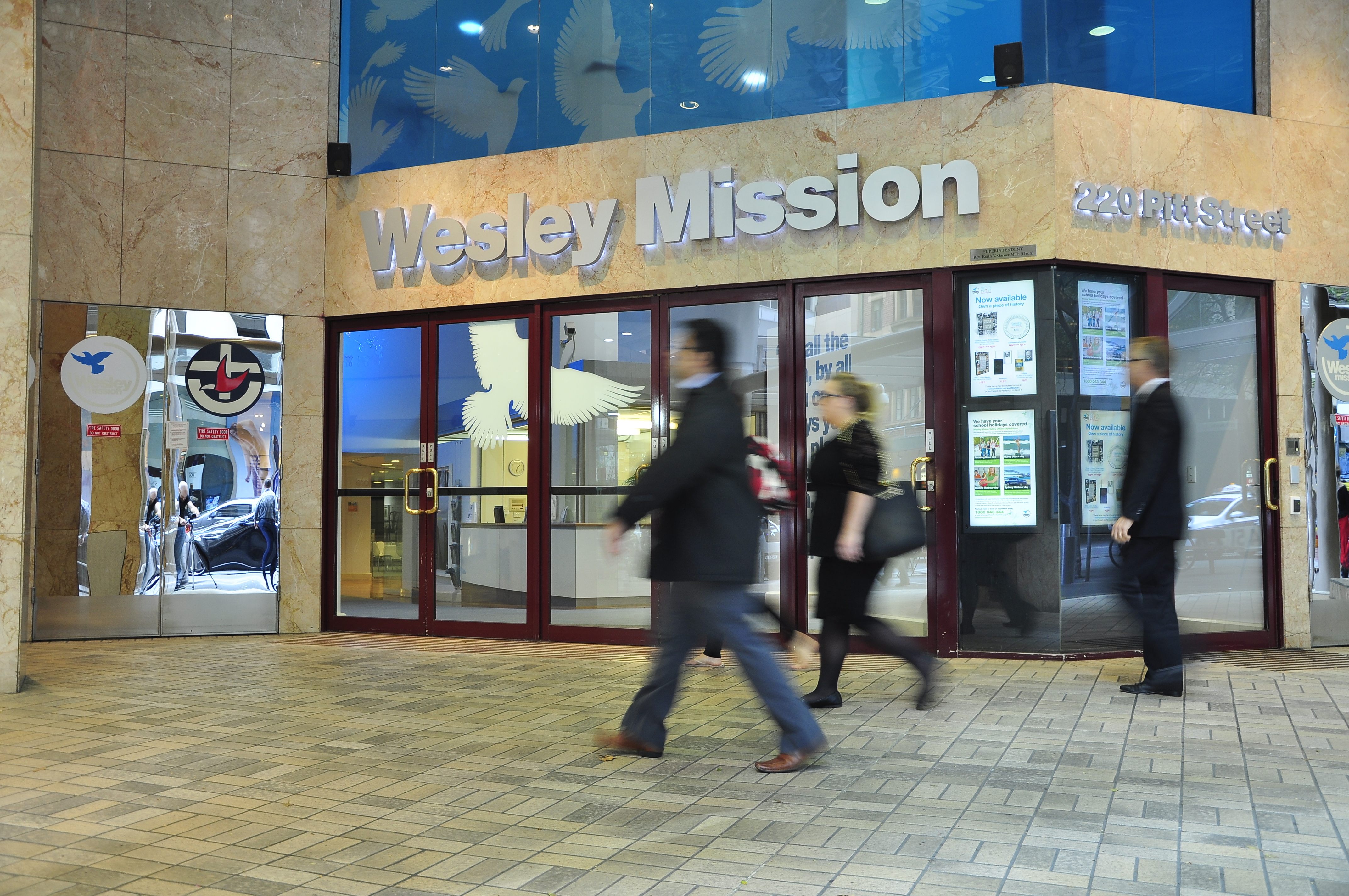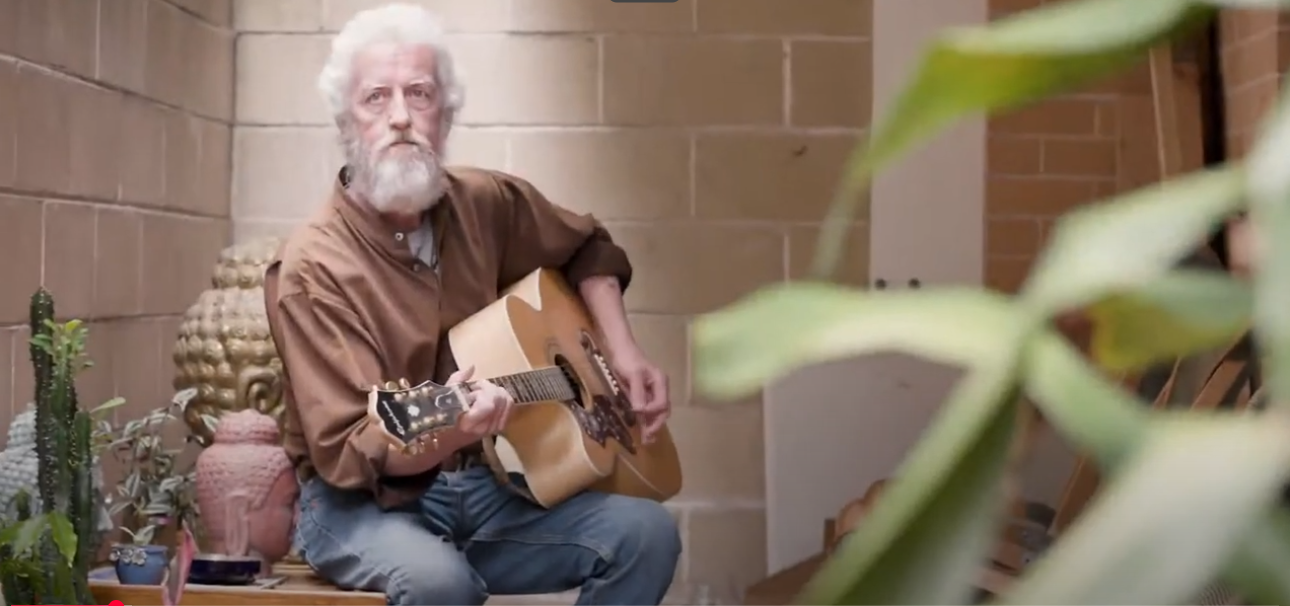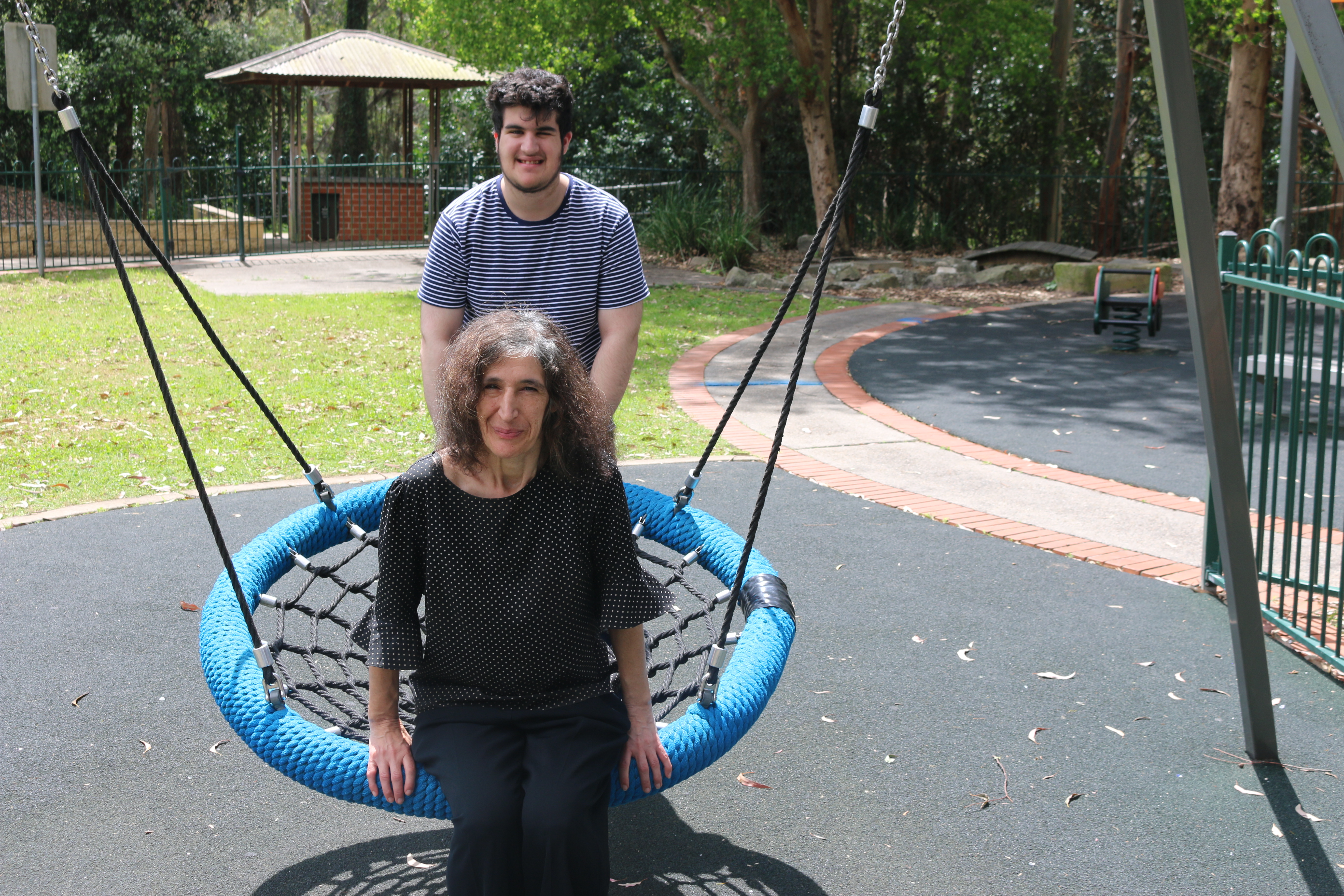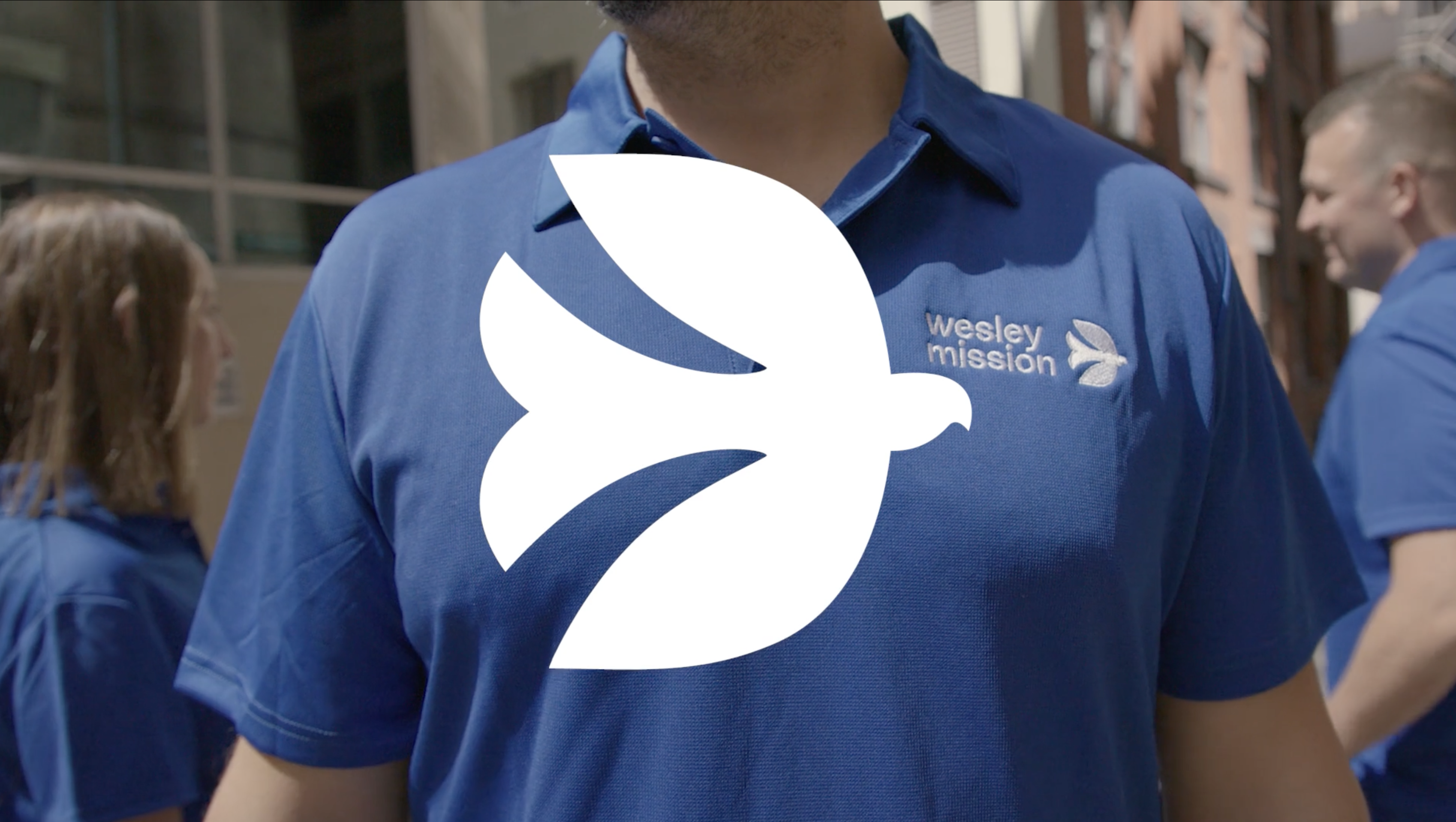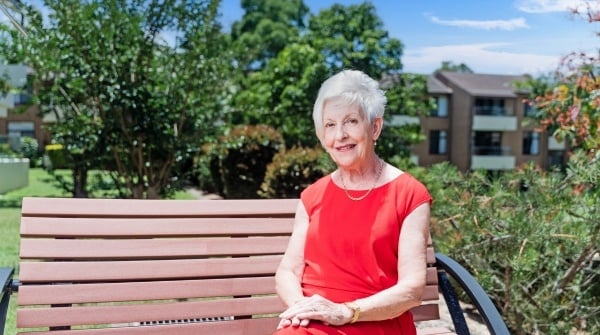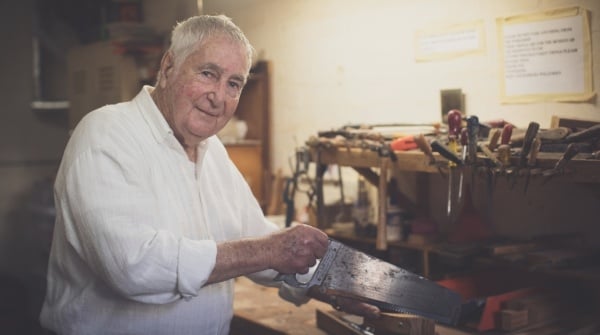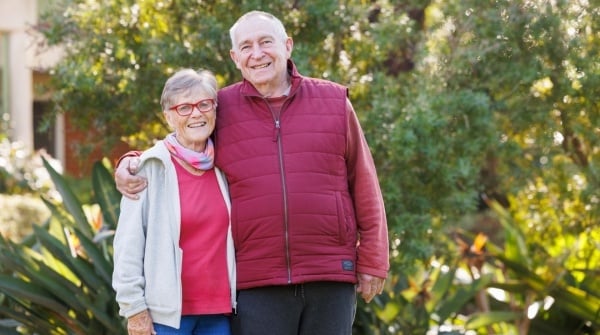Sometimes, life spins. War and instability persist, news cycles magnify every crisis. People struggle, positive change feels unreachable. Easter meets us in the weariness and heartbreak. Other times,...
News and stories

Select your category
Wesley LifeForce has celebrated a major milestone, marking 30 years of community-led lifesaving work in preventing suicide across Australia.
Cottee’s is an Australian household name with a legacy dating back to 1898. But at Wesley Mission, the legacy we remember and appreciate is the generosity of the Cottee family.
Wesley Mission’s head office, conference centre and church facilities have a legacy that stems over a century. In 1906, the Hon Ebenezer Vickery, a dedicated Methodist and wealthy Parliamentarian,...
A huge smile appears across Greg’s face. He points to Michael and says, “This is my friend.”
Martin had always worked. He’d lived in his home for seven years and earned good money from his hospitality job. Then came COVID-19.
In moments of desperation, Jasmine would lock herself in the bedroom, cradling her baby boy close to her chest whenever her son’s father erupted in rage. Despite it being her own home, she felt...
Every week, Daniel and Josh* went on a walk so they could chat. Josh, who’s a passionate Swans fan and wrestling guru, would discuss sports, which then opened the door for Daniel to talk to Josh...
Wesley Mission has launched a new website and refreshed brand. We remain the same organisation – a community services provider and a church that together support all people across all stages of life...
For Kay,it’s the simple things in life, whether going for a walk or having lunch with friends, that bring her joy.
Retirement isn’t a time to slow down for Bill. It's a time to enjoy life with loved ones, travel and give back to others.
“It didn’t take me long to say, ‘I’m going home’,” smiles Maree. After living in the same four-bedroom house for 58 years, Maree was shocked at how quickly she and her husband, Bill adjusted to...
